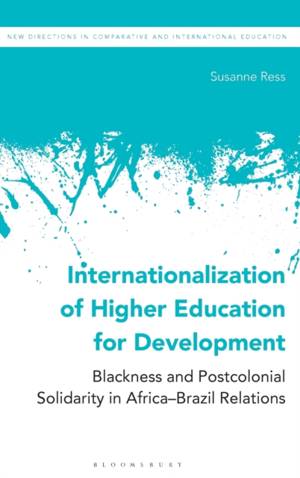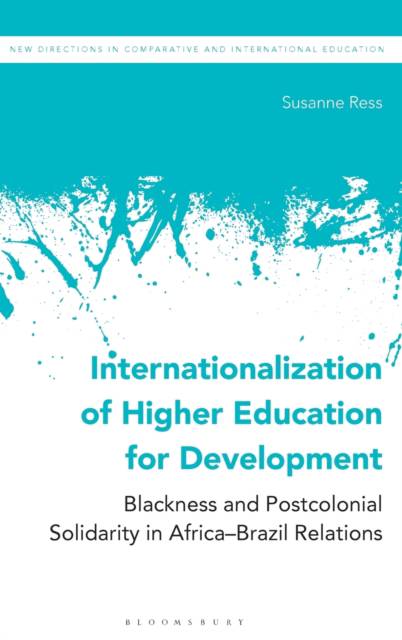
- Afhalen na 1 uur in een winkel met voorraad
- Gratis thuislevering in België vanaf € 30
- Ruim aanbod met 7 miljoen producten
- Afhalen na 1 uur in een winkel met voorraad
- Gratis thuislevering in België vanaf € 30
- Ruim aanbod met 7 miljoen producten
Internationalization of Higher Education for Development
Blackness and Postcolonial Solidarity in Africa-Brazil Relations
Susanne RessOmschrijving
Illuminating thus far understudied international relations in global higher education, the book titled Internationalization of Higher Education for Development illustrates how the Brazilian government, under the presidency of Luis Inácio Lula da Silva (2003-2010), legitimized Africa-Brazil relations often referring to the presumably shared history of transatlantic slavery as the condition for solidarity cooperation and international integration. Ress reveals how this notion of history produces a vision of Brazil as a multicultural nation able to redress longstanding racialized inequalities while casting 'Africa' as the continent that remains forever in the past. She explores how this ambiguous notion was translated into curricula and classroom practices, and, in particular how it shaped international students' experiences at a newly-created university in the Northeast of Brazil. Ress demonstrates how the historicized framing in conjunction with the powerfully racialized class structures that characterize Brazilian society, the challenging material conditions surrounding the university, and the future aspirations of students created an environment that made solidarity an economic necessity while repeating the century-old colonial gesture of othering 'Africa' in new yet all too familiar ways - reworking and reemploying the idea of race in the name of Brazil's progress and development.
This book showcases in an innovative way the challenges and opportunities of building international relations in postcolonial education contexts. A much-needed advances over current scholarship analysing race, blackness, and solidarity, it offers a timely contribution to postfoundational and postcolonial studies in comparative and international education.Specificaties
Betrokkenen
- Auteur(s):
- Uitgeverij:
Inhoud
- Aantal bladzijden:
- 200
- Taal:
- Engels
- Reeks:
Eigenschappen
- Productcode (EAN):
- 9781350045460
- Verschijningsdatum:
- 11/07/2019
- Uitvoering:
- Hardcover
- Formaat:
- Genaaid
- Afmetingen:
- 155 mm x 236 mm
- Gewicht:
- 453 g

Alleen bij Standaard Boekhandel
Beoordelingen
We publiceren alleen reviews die voldoen aan de voorwaarden voor reviews. Bekijk onze voorwaarden voor reviews.











